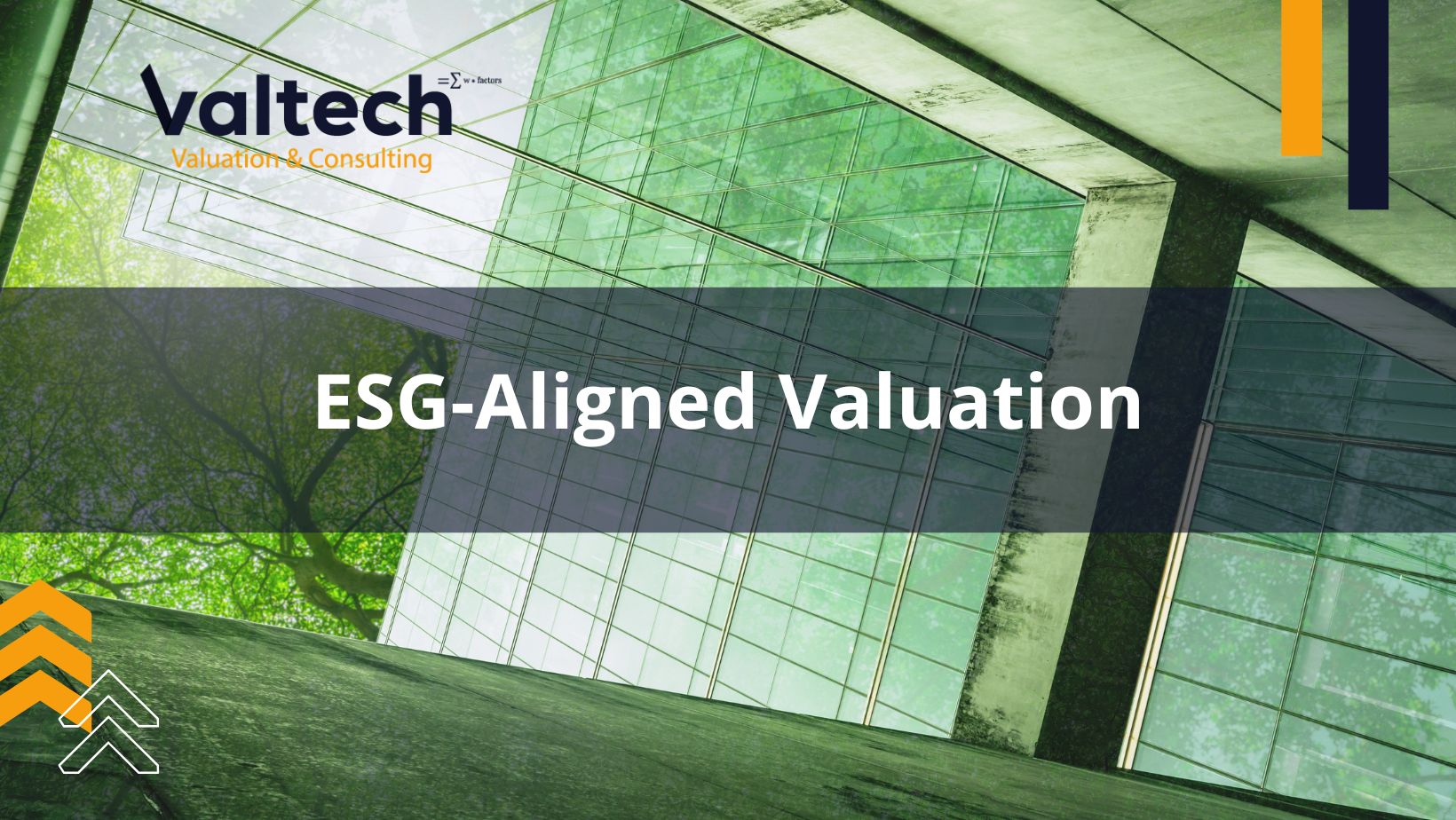ESG-Aligned Valuation Services: The Future of Business Valuation
In today’s rapidly evolving business landscape, Environmental, Social, and Governance (ESG) factors have emerged as critical components in assessing a company’s value. From environmental disasters and social unrest to governance challenges highlighted by the COVID-19 pandemic, ESG considerations are no longer optional—they are essential. As global institutions like the IFRS Foundation, the CFA Institute, and EFRAG work toward developing standardized ESG reporting frameworks, valuers must adapt to incorporate these factors into their analyses. ESG-aligned valuation services are not just a trend; they are a necessity for businesses aiming to thrive in a sustainable future.
Why Consider ESG in Valuation?
ESG factors are increasingly viewed as pre-financial rather than non-financial information. They serve as leading indicators of a company’s long-term financial performance. For instance, a business model vulnerable to climate change or poor social practices may face significant risks, impacting its future profitability. By integrating ESG factors into valuations, stakeholders gain a clearer picture of a company’s resilience and sustainability.
The 2020 economic crisis further underscored the importance of ESG. With prolonged periods of low interest rates, the relative value of long-term cash flows has increased compared to near-term cash flows. This shift makes ESG factors—which emphasize sustainable financial performance—even more critical in determining a company’s market value.
How to Include ESG in Valuation
Incorporating ESG into valuation requires a structured approach across traditional methodologies. Here’s how ESG factors can be integrated into the Market and Income Approaches:
Market Approach
Valuers can enhance the Market Approach by identifying and analyzing ESG criteria for comparable companies. Instead of focusing solely on financial metrics, ESG performance should be evaluated and compared. For example, a company with strong environmental practices may command a premium over peers with weaker ESG performance. This approach ensures a more holistic assessment of a company’s market position.
Income Approach
When using the Income Approach, valuers must carefully assess whether ESG factors have already been implicitly considered in pre-financial characteristics to avoid double-counting. For instance, the size premium, which accounts for higher returns for smaller companies, may already reflect certain ESG risks.
- Beta: ESG factors should be considered when selecting comparable companies to ensure accurate risk assessments.
- Terminal Growth Rate: Companies with strong ESG performance are likely to exhibit higher long-term growth rates. Valuers may need to adjust the terminal growth rate based on the subject company’s ESG performance.
- Risk Premiums and Cash Flows: In more advanced analyses, valuers can introduce specific ESG risk premiums or adjust projected cash flows to reflect ESG-related risks and opportunities. However, this requires a robust and formal ESG framework to ensure accuracy and consistency.
Valtech and GreenCo: Pioneering ESG-Aligned Valuation
Valtech Valuation has been at the forefront of exploring the integration of ESG metrics into valuation studies. In collaboration with GreenCo, a leader in ESG advisory services, Valtech is developing innovative tools and frameworks to meet the growing demand for ESG-aligned valuations.
GreenCo specializes in providing ESG Investment Policy advisory services to fund managers. These policies are tailored to align with a fund’s mandate, target investors, industry focus, and both local and international ESG frameworks. By partnering with GreenCo, Valtech ensures that its valuation services are not only compliant with global standards but also aligned with the evolving expectations of investors and stakeholders.
The Road Ahead
While formal ESG adjustments in valuation are not yet the norm, the trend is clear: investors are increasingly seeking better tools and analytics to incorporate ESG factors into their decision-making processes. Valtech remains committed to developing systemic valuation frameworks that enhance transparency and efficiency. By investing in advanced databases and application development, Valtech is preparing to seamlessly integrate ESG metrics into its valuation analyses, ensuring clients are equipped to navigate the complexities of a sustainable future.
ESG-aligned valuation services represent the next frontier in business valuation. As ESG factors become integral to long-term financial performance, valuers must adapt their methodologies to reflect these considerations. Valtech Valuation, in partnership with GreenCo, is leading the charge in this transformation, offering clients cutting-edge tools and frameworks to assess value in a way that aligns with global sustainability goals. By embracing ESG-aligned valuations, businesses can not only enhance their market position but also contribute to a more sustainable and resilient economy.
About Valtech Valuation
Valtech Valuation is a professional valuation firm accredited with ISO-9001 in valuation advisory services. The firm is renowned for its expertise in advanced valuation techniques, customized valuation models, data-driven insights, and adherence to compliance and reporting standards. The firm has a solid track record in valuation advisory for listed companies, private equity, fund managers, and financial institutions. Valtech’s qualified team comprises members with PhDs, CPA (HKICPA), CFA, Chartered Valuation Surveyors of the Royal Institution of Chartered Surveyors, and valuers accredited with Business Valuation (ABV) by AICPA and CVA qualifications in Singapore. Valtech continues to expand into more markets by leveraging its valuation platform and recruiting local experts.
Valtech Valuation
Beyond Numbers, Beyond Borders
Connect with us today







